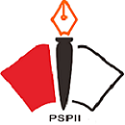Education and Human Resource Development with Neuro-Linguistic Programming (NLP) Techniques: A Case Study of Muhammad Al-Fatih's Leadership
Abstract
Education and human resource development (HR) play an important role in achieving individual and organizational success, with Neuro-Linguistic Programming (NLP) as an effective technique to achieve positive change. This study analyzes the application of NLP in the context of education and human resource development through the case study of Muhammad Al-Fatih, the visionary leader and conqueror of Constantinople. This research highlights how NLP principles, such as mind control, communication mastery, and goal design, are applied in the leadership and educational strategies that shape the character of Al-Fatih. Qualitative methods with a historical approach are used to analyze primary and secondary sources related to Al-Fatih's life. The results of the study show that NLP plays an important role in the formation of character and the development of its competencies, with the application of these techniques in education, such as vision and motivation coaching, contributing to its success. This study recommends the integration of NLP in modern educational curricula to produce resilient, adaptive, and visionary human resources.
Keywords
Full Text:
PDFReferences
Abidin, Z. (2021). Manajemen Peningkatan Mutu Pendidikan Karakter Berbasis Agama, Budaya, dan Sosiologi. Al-Afkar, Journal for Islamic Studies, 4(1).
Arikunto, S. (2010). Prosedur Penelitian Suatu Pendekatan Praktik. Rineka Cipta.
Ash-Shallabi, A. M. (2011). Bangkit dan Runtuhnya Khilafah Utsmaniyah (Vol. 12). Pustaka Al-Kautsar.
Bandler, R., & Grinder, J. (1979). Frogs Into Princes: Neuro Linguistic Programming. Real People Press.
Bandler, R., & Grinder, J. (1982). Reframing: Neuro-linguistic Programming [Trade Mark Symbol] and the Transformation of Meaning. Real People Press.
Bandura, A. (1997). Self-Efficacy in Changing Societies. Cambridge University Press.
Creswell, J. W., & Creswell, J. D. (2017). Research Design: Qualitative, Quantitative, and Mixed Methods Approaches. SAGE Publications.
Dilts, R. (1996). Visionary Leadership Skills: Creating a World to which People Want to Belong. Meta Publications.
Goleman, D. (2012). Emotional Intelligence: Why It Can Matter More Than IQ. Random House Publishing Group.
Hejase, H. J., Tartozi, M. I., & Hashem, F. (2015). Neuro-Linguistic Programming and Leadership: An Exploratory Study on Lebanese Management. European Journal of Business and Social Sciences, 4(09), 121–155.
İnalcık, H. (2000). The Ottoman Empire: The Classical Age 1300-1600. Phoenix Press.
Mashail, A. (2020). Penaklukan Konstantinopel Oleh Muhammad Al-Fatih Dalam Film Battle Of Empires Fetih 1453 (Analisis Tzvetan Todorov) [Skripsi]. IAIN PURWOKERTO.
Moleong, L. J. (2017). Metodologi Penelitian Kualitatif (Edisi Revisi). Remaja Rosda Karya.
Nuraeni, Y., & Suryono, I. (2021). Analisis Kesetaraan Gender dalam Bidang Ketenagakerjaan Di Indonesia. Nakhoda: Jurnal Ilmu Pemerintahan, 20. https://doi.org/10.35967/njip.v20i1.134
Nurdin, F. (2022). Pengaruh Hadis dan Kekuatan Spiritual terhadap Sultan Muhammad Al-Fatih dalam Penaklukan Konstantinopel. Jurnal Ilmiah Al-Mu’ashirah, 19(2), 198. https://doi.org/10.22373/jim.v19i2.14285
Qushoy, M., Hartono, R., Fitriati, S. W., & Bharati, D. A. L. (2023). The Effectiveness Of Neuro Linguistic Programming To Increase Students’ Confidence In Learning English For Islamic Junior High School Students. Prosiding Seminar Nasional Pascasarjana, 6(1), 1069–1072.
Rahmalia, S. M., & Laeli, S. (2024). Pengaruh Lingkungan Keluarga terhadap Perkembangan Kepribadian Anak. Karimah Tauhid, 3(9), 10007–10018. https://doi.org/10.30997/karimahtauhid.v3i9.14596
Ridwan, M., & Bakhtiar, N. (2020). Nilai -Nilai Pendidikan dan Dakwah Muhammad al-Fatih Sebagai Penakluk Konstantinopel. Wardah, 21(1), 50–65. https://doi.org/10.19109/wardah.v21i1.5824
Rijk, L. De, & Wake, L. (2010). NLP: Principles in Practice. Ecademy Press.
Sada, H. J. (2017). Kebutuhan Dasar Manusia dalam Perspektif Pendidikan Islam. Al-Tadzkiyyah: Jurnal Pendidikan Islam, 8(2), 213. https://doi.org/10.24042/atjpi.v8i2.2126
Septiana, S., Wicaksono, R. N., Saputri, A. W., Fawwazillah, N. A., & Anshori, M. I. (2023). Meningkatkan Kompetensi Sumber Daya Manusia Untuk Masa Yang Mendatang. Student Research Journal, 1(5), 446–466.
Soethama, P. L., Qomaria, Y., & Putra, P. A. B. W. (2024). Culture, Linguistic, and Spiritual: the Use of Neuro-Linguistic Programming In Multiculturalism Activities of Bali’s Pandita. Eduvest - Journal of Universal Studies, 4(8), 7001–7016. https://doi.org/10.59188/eduvest.v4i8.1687
Sugiyono, S. (2017). Metode Penelitian Kuantitatif, Kualitatif, dan R&D. CV. Alfabeta.
Yusrin, N., & Kurniaty, D. (2023). Pengaruh Resiliensi Terhadap Produktivitas Kerja Karyawan Di Masa Pandemi Covid-19 Pada Departemen Business Operation PT AXA Mandiri Financial Services. Jurnal Manajemen Dan Bisnis Madani, 5(1), 1–14. https://doi.org/10.51353/jmbm.v5i1.653
DOI: http://dx.doi.org/10.24042/atjpi.v15i2.24823
Refbacks
- There are currently no refbacks.
Copyright (c) 2025 Al-Tadzkiyyah: Jurnal Pendidikan Islam

This work is licensed under a Creative Commons Attribution 4.0 International License.

Al-Tadzkiyyah: Jurnal Pendidikan Islam is licensed under a Creative Commons Attribution 4.0 International License. Copyright © UIN Raden Intan Lampung. All rights reserved.








